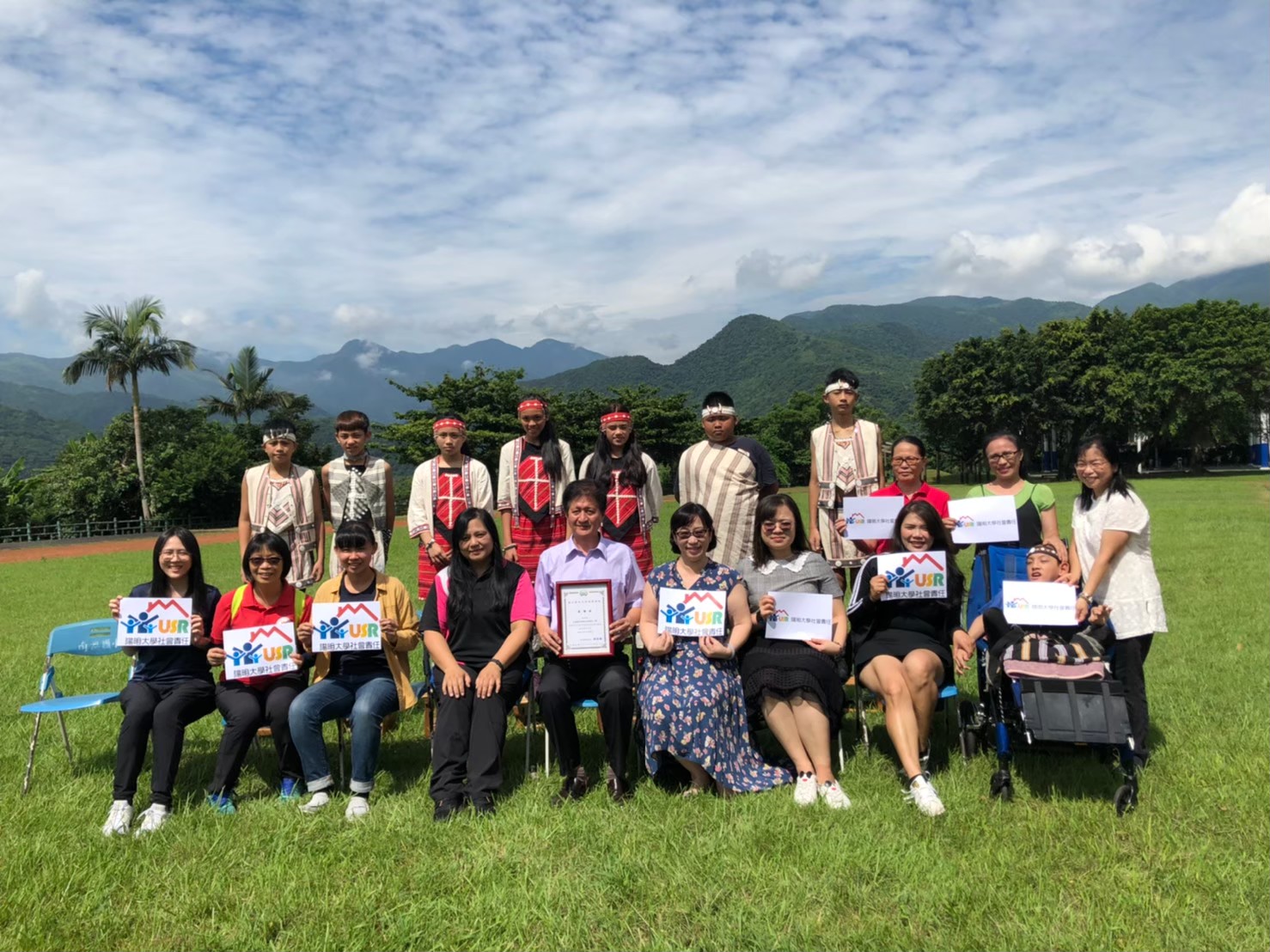亞太永續行動獎-亞太永續行動獎 大學組:銅獎
國立陽明交通大學

Tribal Star Incubation Knowledge Construction on the Ground
This best sustainable action plan is the result of the implementation of National Yang Ming Chiao Tung University’s social responsibility project “Tribal star incubation by Intelligent HEAlth for RemoTe areas (iHEART)” at the Tayal tribe in Nanao, Yilan. The project has been underway for over two years. From on-site interviews to analyzing problems, we’ve gotten a clear picture of the systemic medical, cultural, and economic challenges that indigenous tribes in Nanao face. We also realized that outside resources and professional talents are just temporary solutions that cannot resolve the true underlying problems. Therefore, focusing on the concept of “sustainability”, we used professional methods to construct knowledge system modules in line with the local culture. Knowledge systems are persistent. They can take root and grow and be replicated to expand its benefits. These efforts led to the promotion of “Tribal Star Incubation: Tayal Placemaking and Knowledge Construction”.
“Tribal Star Incubation: Tayal Placemaking and Knowledge Construction” started because of the pandemic of the century and grew with the instillation of knowledge and values. In 2020, when the COVID-19 pandemic had just begun to spread, local weavers used traditional weaving techniques to create masks for those who returned to the tribe due to unemployment. Unfortunately, the masks did not provide adequate protection. Utilizing science and medical technologies, the National Yang Ming Chiao Tung University incorporated indigenous totems to create the “indigenous style 3D beauty face mask”, establishing cultural resonance between the executors and subjects of the project, building trust between us and the indigenous people, and launching the first wave of indigenous health education promotion during the pandemic.
On this basis, we successfully carried out two local knowledge construction projects in 2021. One is a module to translate and popularize medical vocabulary. Dialysis is a pain for local tribes, and through the needs of dialysis centers, we see that medication safety is the sustainable way to prevention. Therefore, we translated medication-related knowledge and vocabulary into more colloquial terms and incorporated them into indigenous songs. We held sing and dance-alongs with the young and old alike, turning knowledge into catchy cultural symbols. The other module is about medical education for children. We had the local children create an animated video titled “Coronavirus Space Exploration”. The children colored, filmed, and dubbed the film by themselves. This not only gave them a sense of achievement and pride but also instilled relevant knowledge. The project resulted in a shared final product, a teaching material that can be used repeatedly, and a sustainable education module.
We continue to implement the Tribal Star Incubation project in Nanao with the belief that the highest value of sustainability comes from a sense of identity. Only by making resources, executive concepts, and achievements something locals can culturally identify with can there be the possibility of sustainable development and higher success rate of replication. The meaning of sustainable development is extension and emphasis on replicability. “Tribal Star Incubation: Tayal Placemaking and Knowledge Construction” is a set of modules that can be limitlessly expanded upon. It includes the construction of placemaking, cultural identity, and knowledge systems and has economic, social, and educational results.
“Tribal Star Incubation: Tayal Placemaking and Knowledge Construction” started because of the pandemic of the century and grew with the instillation of knowledge and values. In 2020, when the COVID-19 pandemic had just begun to spread, local weavers used traditional weaving techniques to create masks for those who returned to the tribe due to unemployment. Unfortunately, the masks did not provide adequate protection. Utilizing science and medical technologies, the National Yang Ming Chiao Tung University incorporated indigenous totems to create the “indigenous style 3D beauty face mask”, establishing cultural resonance between the executors and subjects of the project, building trust between us and the indigenous people, and launching the first wave of indigenous health education promotion during the pandemic.
On this basis, we successfully carried out two local knowledge construction projects in 2021. One is a module to translate and popularize medical vocabulary. Dialysis is a pain for local tribes, and through the needs of dialysis centers, we see that medication safety is the sustainable way to prevention. Therefore, we translated medication-related knowledge and vocabulary into more colloquial terms and incorporated them into indigenous songs. We held sing and dance-alongs with the young and old alike, turning knowledge into catchy cultural symbols. The other module is about medical education for children. We had the local children create an animated video titled “Coronavirus Space Exploration”. The children colored, filmed, and dubbed the film by themselves. This not only gave them a sense of achievement and pride but also instilled relevant knowledge. The project resulted in a shared final product, a teaching material that can be used repeatedly, and a sustainable education module.
We continue to implement the Tribal Star Incubation project in Nanao with the belief that the highest value of sustainability comes from a sense of identity. Only by making resources, executive concepts, and achievements something locals can culturally identify with can there be the possibility of sustainable development and higher success rate of replication. The meaning of sustainable development is extension and emphasis on replicability. “Tribal Star Incubation: Tayal Placemaking and Knowledge Construction” is a set of modules that can be limitlessly expanded upon. It includes the construction of placemaking, cultural identity, and knowledge systems and has economic, social, and educational results.

